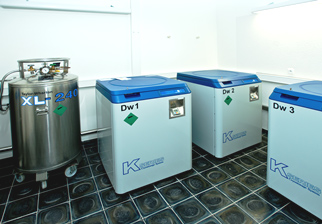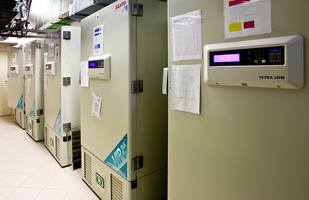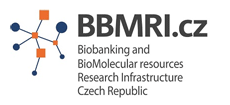A biobank collects, processes, stores and provides biological samples and associated data for biomedical research. Samples and data are then used by scientists in research aimed at understanding the disease etiology, including the proportion of genetic factors and the impact of lifestyle and the environment. The aim of such research is to explore new possibilities of prevention, early diagnosis and effective treatment.
Biological samples are collected from volunteer donors and are usually obtained from routine diagnostic or therapeutic procedures that are necessary for the diagnosis, treatment and monitoring of the disease. Samples in question may be various kinds of tissue or body fluids, including tumor tissue, healthy tissue, blood, and urine, etc.
The samples are processed in a laboratory for long-term storage. Along with samples the biobank collects information about the donors’ health (e.g. clinical data and results of laboratory tests), which may be important for future research. For the protection of privacy, the biobank keeps information about the samples and the associated data coded in the biobank database.
The main importance of the biobank lies in the storage of high-quality biological samples, the collection and processing of which takes place under standardized conditions (ISO 9001 certification). The quality of the samples and the associated clinical data play an important role in their future use for research. All biobank activities are carried out according to applicable law and ethical standards found in international conventions and recommendations.





